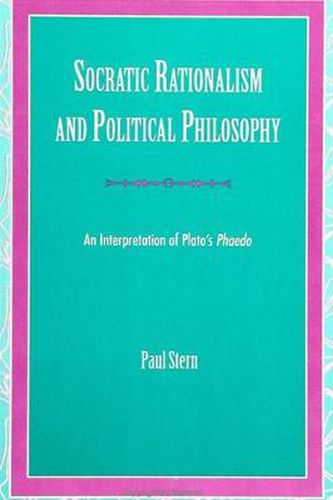Readings Newsletter
Become a Readings Member to make your shopping experience even easier.
Sign in or sign up for free!
You’re not far away from qualifying for FREE standard shipping within Australia
You’ve qualified for FREE standard shipping within Australia
The cart is loading…






In this new interpretation of Plato’s Phaedo, Paul Stern considers the dialogue as an invaluable source for understanding the distinctive character of Socratic rationalism. First, he demonstrates, contrary to the charge of such thinkers as Nietzsche, Heidegger, and Rorty, that Socrates’ rationalism does not rest on the dogmatic presumption of the rationality of nature. Second, he shows that the distinctively Socratic mode of philosophizing is formulated precisely with a view to vindicating the philosophic life in the face of these uncertainties. And finally, he argues that this vindication results in a mode of inquiry that finds its ground in a clear understanding of the problematical but enduring human situation. Stern concludes that Socratic rationalism, aware as it is of the limits of reason, still provides a nondogmatic and nonarbitrary basis for human understanding.
$9.00 standard shipping within Australia
FREE standard shipping within Australia for orders over $100.00
Express & International shipping calculated at checkout
In this new interpretation of Plato’s Phaedo, Paul Stern considers the dialogue as an invaluable source for understanding the distinctive character of Socratic rationalism. First, he demonstrates, contrary to the charge of such thinkers as Nietzsche, Heidegger, and Rorty, that Socrates’ rationalism does not rest on the dogmatic presumption of the rationality of nature. Second, he shows that the distinctively Socratic mode of philosophizing is formulated precisely with a view to vindicating the philosophic life in the face of these uncertainties. And finally, he argues that this vindication results in a mode of inquiry that finds its ground in a clear understanding of the problematical but enduring human situation. Stern concludes that Socratic rationalism, aware as it is of the limits of reason, still provides a nondogmatic and nonarbitrary basis for human understanding.